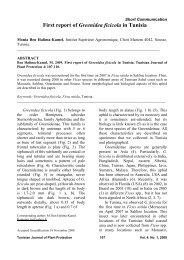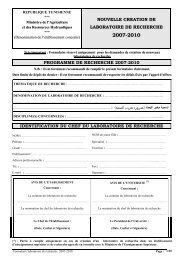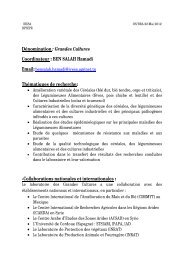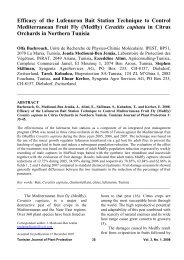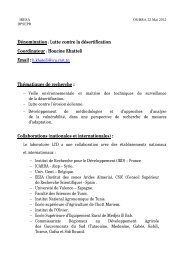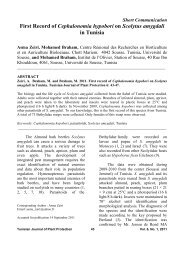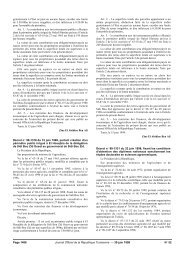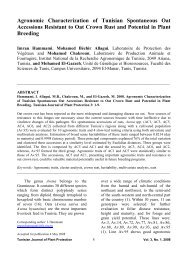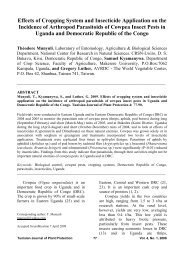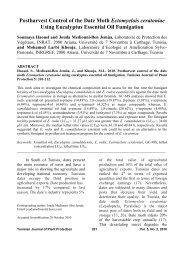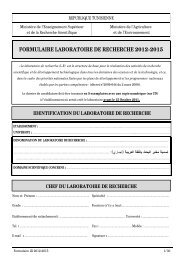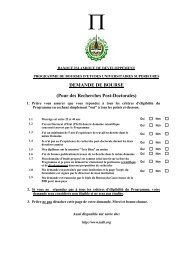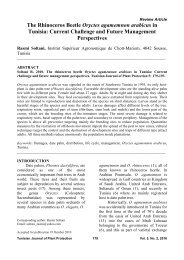Tunisian Journal of Plant Protection Vol. 8, No. 1, 2013 - Iresa
Tunisian Journal of Plant Protection Vol. 8, No. 1, 2013 - Iresa
Tunisian Journal of Plant Protection Vol. 8, No. 1, 2013 - Iresa
- No tags were found...
Create successful ePaper yourself
Turn your PDF publications into a flip-book with our unique Google optimized e-Paper software.
Guest EditorialPesticides and Beneficial Insects: Do we Need BetterRegulations?The controversy around banningpesticides that has an adverse effect onbeneficial insects such as bees or naturalenemies <strong>of</strong> pests that attack economiccrops is many decades old, but no seriousaction on this issue was taken bygovernments across the globe. Recentnews indicated that the European Unionis seriously considering to establish atwo-year ban on three pesticidessuspected <strong>of</strong> contributing to the globaldecline in the number <strong>of</strong> bees. Already 15countries voted to allow the EuropeanCommission (EU) to restrict the use <strong>of</strong>insecticides from December 2012.However, it seems that the EU failed toreach the majority needed to adopt theban outright, meaning the decision ispassed to the EU.The three insecticides are“imidocloprid”, “clothianidin” and“thiamethoxam”, all <strong>of</strong> them are used asseed treatment in addition to applyingthem as soil drench or sprayed on beeattractiveplants, such as cereals. It isimportant to note that bee numbers wentdown in the Middle East, Europe andUSA by up to 85% in some regions.The role <strong>of</strong> bees in helping plantsto bear fruits through enhancement <strong>of</strong>flower pollination is a commonknowledge. However, the influence <strong>of</strong> themanufacturing companies on the politicalmachine <strong>of</strong> their respective countries isalways a hurdle which is not easy tocross. Accordingly, eight countries,including the United Kingdom votedagainst the ban. The pesticides companiesstress the point that the ban is a poordecision because it is based on anincomplete scientific analysis. This is anopen invitation to world scientists,including those in the Middle East and<strong>No</strong>rth Africa to investigate this issuefurther and produce reliable data thatcan explain what happens in the field.Many small farmers rely on the incomegenerated by bee products, not to mentionthe indirect other benefits <strong>of</strong> a balancedbee population, and if the scientificevidence proves harmful effects <strong>of</strong> somechemicals to bees or other beneficialinsects, the ban should also be consideredoutside Europe.Dr. Khaled MakkoukNational Council for Scientific ResearchBeirut, Lebanon<strong>Tunisian</strong> <strong>Journal</strong> <strong>of</strong> <strong>Plant</strong> <strong>Protection</strong> <strong>Vol</strong>. 8, <strong>No</strong>. 1, <strong>2013</strong>



